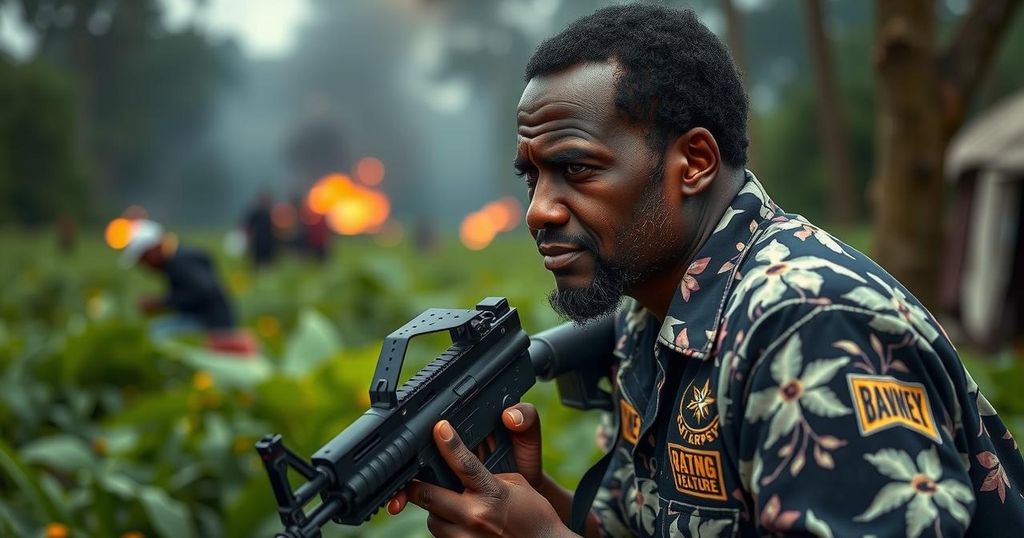The Democratic Republic of Congo has accused Rwanda-backed M23 rebels of violating a ceasefire agreement by intensifying military operations in eastern DRC, particularly targeting the town of Pinga. Local military officials stated that while their forces are adhering to the ceasefire, the M23 has seized new territory, leading to clashes with Congolese and allied militia forces, and drawing condemnation from regional and international actors.
The Democratic Republic of Congo (DRC) has raised serious concerns regarding the actions of Rwanda-backed M23 rebels, accusing them of exploiting a ceasefire agreement to further their military objectives in eastern DRC. Following a renewed offensive initiated in late 2021, the M23 militia, primarily composed of ethnic Tutsi, has gained significant territorial control, resulting in the displacement of thousands and exacerbating an ongoing humanitarian crisis in the area. Despite a ceasefire agreement that was reached between Rwanda and the DRC in early August, the M23 has reportedly intensified its operations, particularly in North Kivu province, where it appears to be attempting to capture the strategically important town of Pinga. The DRC’s military authorities assert that their forces are adhering to the terms of the ceasefire, while accusing Rwanda of utilizing this fragile peace to extend its territorial reach. Although both Rwandan and Congolese military forces have generally maintained the truce, there have been numerous violations by affiliated armed groups. The M23’s recent capture of the contested town Kalembe has prompted criticisms from the Angolan government, which helped broker the ceasefire, describing the M23’s actions as a “flagrant violation” of the agreement. Furthermore, voices from France have condemned the ongoing offensives launched by the M23 militia. Currently, armed clashes persist in the region as the Congolese forces, along with the Wazalendo militias, engage the M23 militants near Pinga, underscoring the fragile and volatile situation amidst a complex landscape of competing factions and persistent violence over the past three decades in this resource-rich area.
The conflict in eastern Democratic Republic of Congo is deeply rooted in a combination of internal strife and regional tensions, primarily fueled by historical grievances dating back to the Rwandan genocide and the subsequent influx of Tutsi refugees into DRC. The M23 militia, emerging in 2012 before a resurgence in 2021, primarily consists of former soldiers from a previous Tutsi-led armed group. Ongoing violence has caused extensive humanitarian crises, with millions displaced and severe impacts on local populations. The area remains a hotspot of rebel activity, with numerous factions vying for control over rich mineral resources, further complicating peace efforts and stabilization initiatives.
In summary, the DRC’s military has accused Rwanda-backed M23 rebels of violating a recent ceasefire and expanding their territorial gains in eastern DRC, despite assurances that both sides are observing the truce. The situation remains precarious with continuous clashes, significant humanitarian implications, and broader international condemnation of the M23’s aggressive actions, all underscoring the ongoing challenges facing peace in a region burdened with decades of conflict.
Original Source: www.barrons.com






